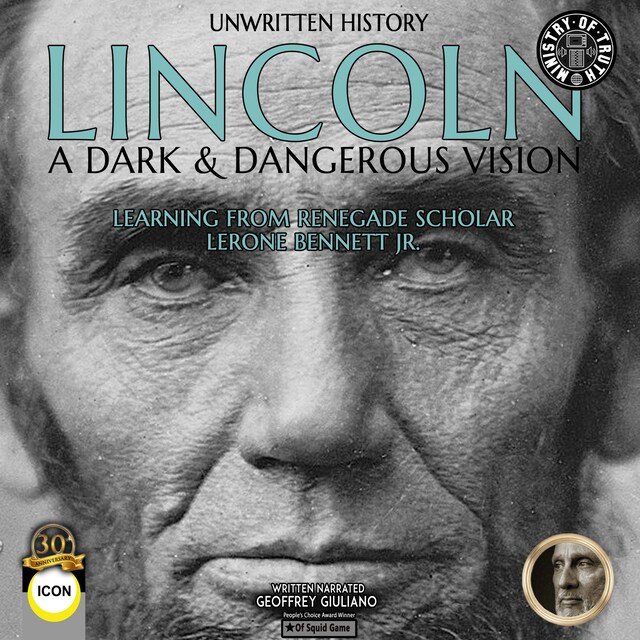
Unwritten History Lincoln A Dark & Dangerous Vision
Learning From Renegade Scholar Lerone Bennett Jr.
Description of book
Lincoln's connection to black history may go much further than his role in slavery. In the 2001 book 'Black People and Their Place in History', historian Leroy Vaughn, alleges that Lincoln’s father was African American and his mother had Ethiopian ethnicity, both of which may have explained his “very dark skin and coarse hair.” The fact is his rivals campaigned using propaganda that depicted Lincoln as “Abraham Africanus the First,” an African man.
It is claimed that Abraham Lincoln, who became America’s 16th President in 1860, was a Melungeon; a person of European, African-American and Native American ancestry.
But beyond even that thoughtful historical proposition the late scholar Lerone Bennet Jr. sees America's most beloved president in a very different light to how he has been portrayed throughout time. Bennet hit a nerve in his research and writing on Lincoln. His book, 'Forced into Glory: Abraham Lincoln's White Dream', questions Lincoln's role as the "Great Emancipator". The work was described by one reviewer as a "flawed mirror." It was further criticized by historians of the Civil War period as faulty.
In his introduction, Bennett wrote:
"The idea of the book is simple: Everything you think you know about Lincoln and race is wrong. Every schoolchild, for example, knows the story of "the great emancipator" who freed Negroes with a stroke of the pen out of the goodness of his heart. The real Lincoln ... was a conservative politician who said repeatedly that he believed in white supremacy. Not only that: He opposed the basic principle of the Emancipation Proclamation until his death and was literally forced – Count Adam Gurowski said he was literally whipped – "into the glory of having issued the Emancipation Proclamation," which Lincoln drafted in such a way that it did not in and of itself free a single slave."
Bennett's critics, including historians as well as political scientists, believe he ignores Lincoln's political and moral growth during the course


